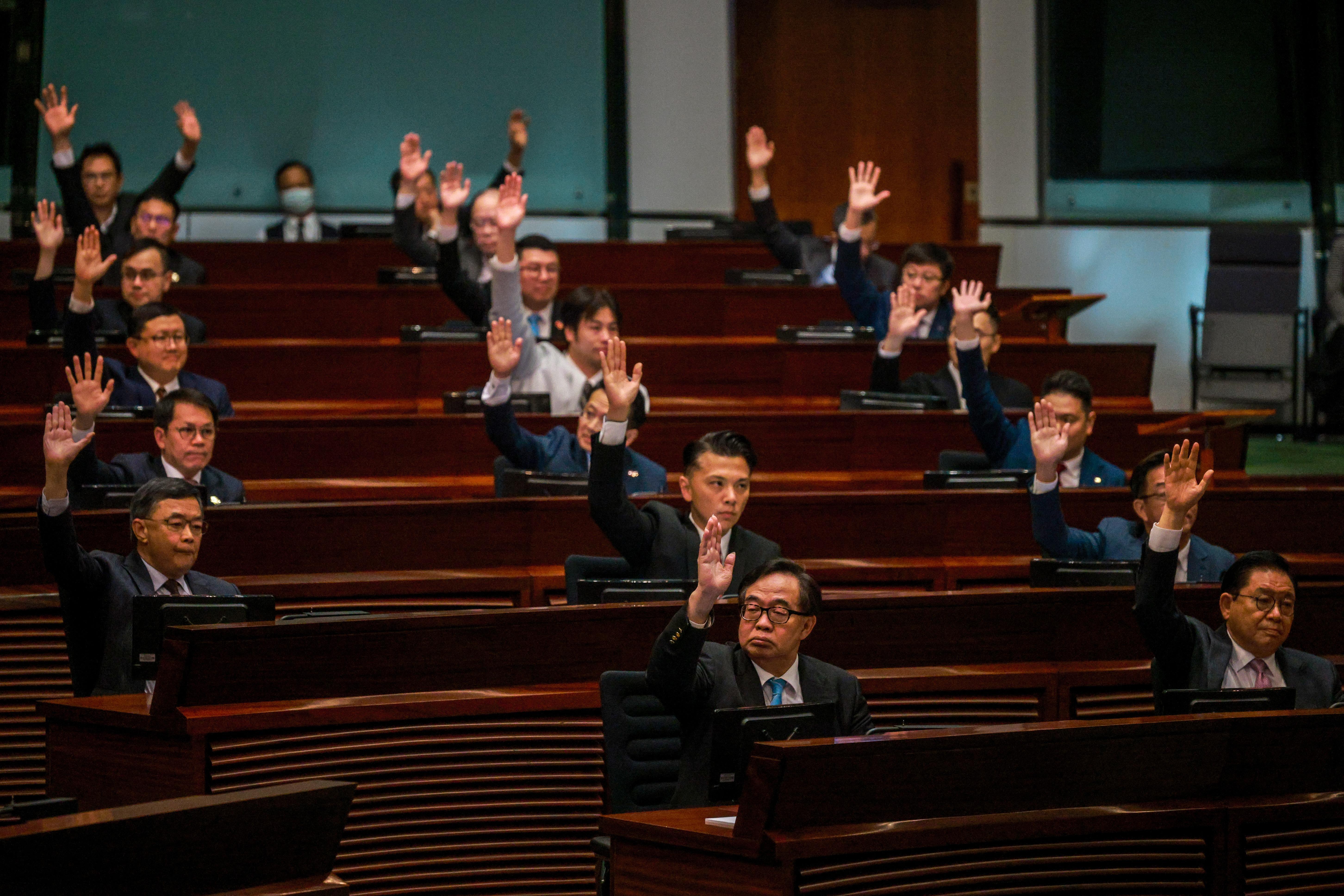 Lawmakers raise their hands as they vote in favor of passing the safeguarding national security bill during its second reading on Tuesday. (Andy Chong / China Daily)
Lawmakers raise their hands as they vote in favor of passing the safeguarding national security bill during its second reading on Tuesday. (Andy Chong / China Daily)
Tuesday’s passing of the Safeguarding National Security Ordinance in the Hong Kong Special Administrative Region’s legislature marked a significant milestone in the implementation of “one country, two systems” in the HKSAR.
The completion of this local national security legislation signifies that the constitutional responsibility mandated by Article 23 of the Basic Law for the special administrative region has finally been fulfilled after 27 years’ delay. For the first time, the Basic Law is implemented in its entirety, and the principle of “one country, two systems” is fully and accurately implemented.
The completion of this local national security legislation signifies that the constitutional responsibility mandated by Article 23 of the Basic Law for the special administrative region has finally been fulfilled after 27 years’ delay
The new legislation complements the National Security Law for Hong Kong in providing the special administrative region with a comprehensive mechanism to fend off national security threats and prevent a state of anarchy and chaos like the one in 2019 from happening again, allowing the city to focus on socioeconomic development and livelihood improvement.
It wouldn’t surprise anyone if some Western countries and media outlets were to launch a new round of attacks on Hong Kong over the legislation. They had relentlessly demonized Article 23 legislation ever since the HKSAR government announced, in October last year, its plan to launch and complete the legislative process for Article 23 in 2024.
They have been peddling their hyped “concerns” about the legislation’s potential impact on individuals’ rights and freedoms, playing down the fact that the legislative proposals are much more lenient than similar laws in force in many other common-law jurisdictions, including the United States and the United Kingdom.
The ordinance heavily draws references from similar laws in force in other common-law jurisdictions, such as the UK’s National Security Law 2023, which targets foreign influence and espionage, and Singapore’s Foreign Interference (Countermeasures) Act 2021, which counters foreign influence. By striking a balance between safeguarding national security and protecting individuals’ rights and freedoms, it fully complies with the principles of human rights protection, fairness, justice, and the rule of law.
The monotonous narratives about “rights” and “freedoms” that Western politicians and media outlets have invariably peddled in their all-out campaign to vilify the Article 23 legislation did not sell well, either in the international community or the local community. Around 98.6 percent of those who responded to the Article 23 legislation consultative document expressed support during a month-long public consultation; business leaders operating in Hong Kong generally believe that the new law will protect their interests and ensure a favorable environment for operations.
The ferocity with which a few Western countries, particularly the US and UK, have crusaded against Hong Kong’s national security legislation, employing all kind of tactics imaginable such as propagating rumors and fake news, scaremongering and intimidating with threats of sanctions, exhibits unabashed hypocrisy, clear-cut double standards, and palpable animosity. This can only be deciphered in the context of Washington’s geopolitical strategy on China.
The author is a current affairs commentator.
The views do not necessarily reflect those of China Daily.



